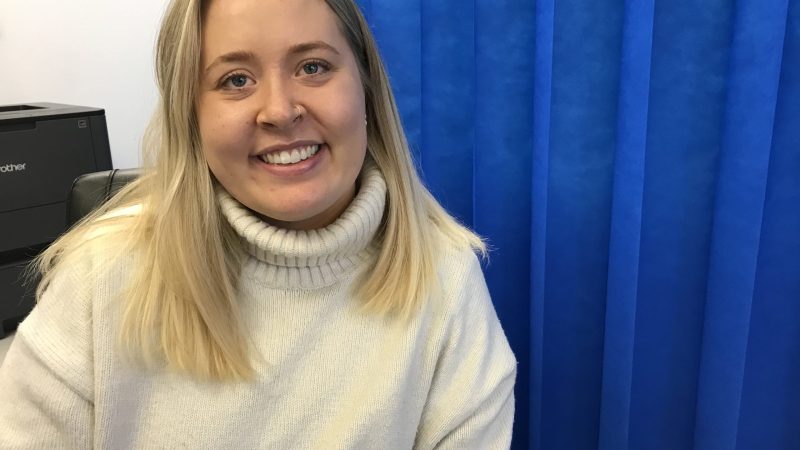Pip Thorne is a social prescribing link worker, based in two GP practices in Balham and Tooting. Working for the not-for-profit organisation Enable, she supports people with the non-medical issues that affect their wellbeing by linking them to the many Wandsworth organisations that can help. As Pip explains, a personal setback means she brings her own lived experience to the role, as she supports people to take back control of their journeys to better health.
How long have you been a link worker – and how is it going?
I’ve been doing it for six months now. I am enjoying it, it’s very gratifying work. It can be hard, emotionally draining but we have a good team to talk though issues.
What inspired you to become a link worker?
I volunteered at Citizens Advice for a good while – that was my background. I wanted a role where I could help people in a practical way. With this job I just felt – it fits. I also have a bit of lived experience, which helps. I had a head injury seven years ago, when I was at university. My recovery was a slow process. I felt like I was falling down the cracks. Volunteering played a bit part in my recovery, and peer support. Looking back, I wish I’d had a link worker to connect me to services. Things can get overwhelming; you know there are services out there that can make things better. What’s difficult is taking that first step.
How would you define the role of a social prescribing link worker?
What I always say to people is that my job is to support your wellbeing by linking you to services in the community – so emotional, practical and social support. It’s very patient-led; about helping people take that first step to improving their own lives by pointing them to the organisations that can make a real difference.
Can you give us an example?
I’ve worked with a person, where a medical emergency had a profound impact on her life, affecting mobility, speech and ability to work. Her confidence had taken a knock, so we worked together to increase that. I helped her find the right volunteering opportunities, as well as peer support.
What is having an impact on people right now?
The cost of living is affecting a lot of my clients. It comes up in around 80% of my chats with people. For some, it’s adding an extra layer of anxiety that makes it difficult to deal with their core issues. But for others, worries such as housing costs and low income are the main cause of their anxiety. We can link them to the experts, whether for benefit, debt or housing advice. There are lots of grants and sources of income out there that people don’t know about.
What’s the most rewarding thing about the job
Watching people grow in confidence. People often arrive in a very confused place. Watching that disappear, as they get their old self back, is gratifying. There was an elderly lady. A friend, who she spoke to all the time, had passed away, which hit her quite hard. There are a lot of services out there to prevent isolation, but she wasn’t ready for those. Slowly, slowly we introduced new things – befriending, home visits, tiny wins like going for a coffee when she was at the shops.
What should people do next if they are struggling?
Talk to your GP. They can refer you to a link worker like me. There are so many community and voluntary organisations out there, and no reason why people should know about them unless they’ve used them in the past. They’re doing such important work and we can make those connections. I say to clients, let me do the research, speak to people to take off the pressure, to stop it feeling really overwhelming.
